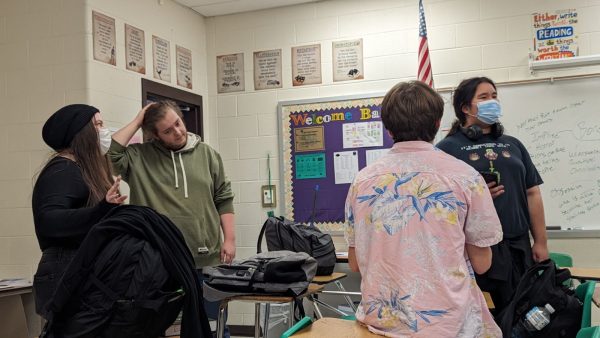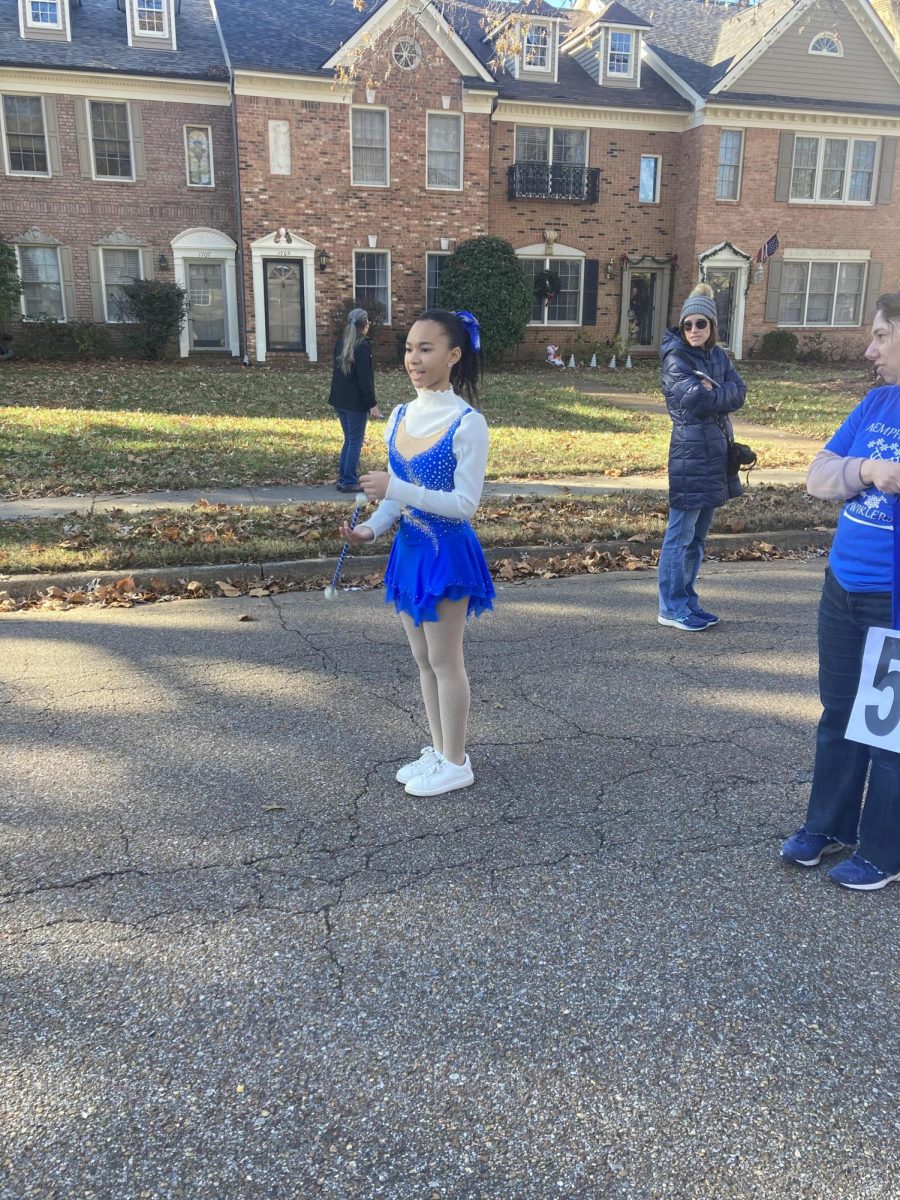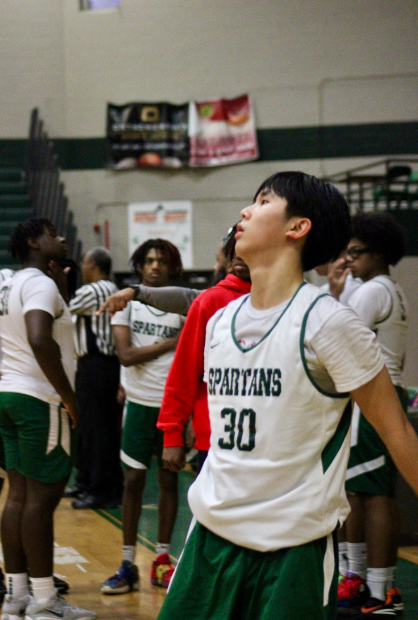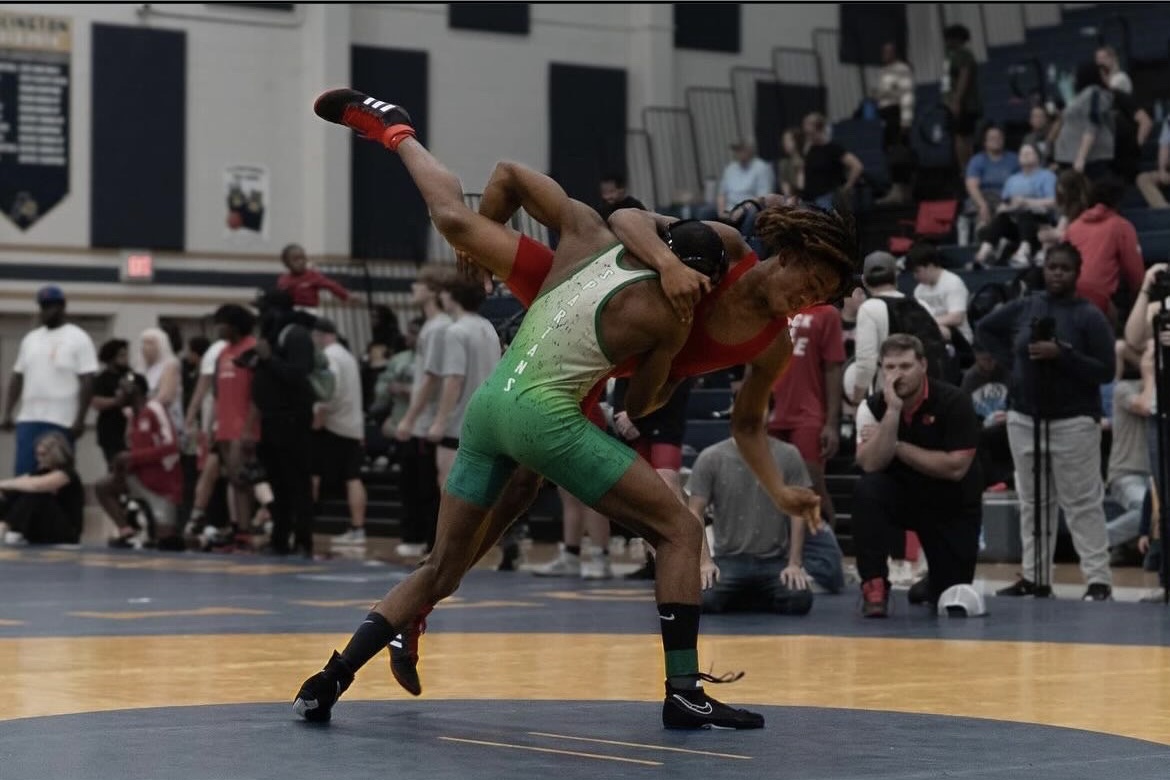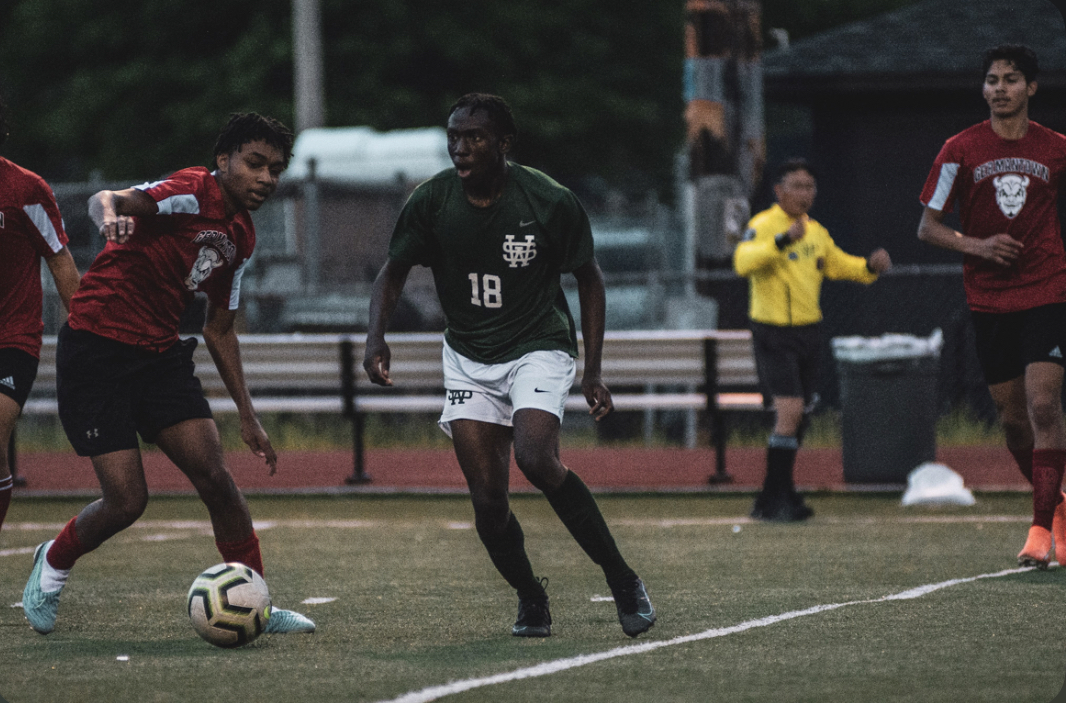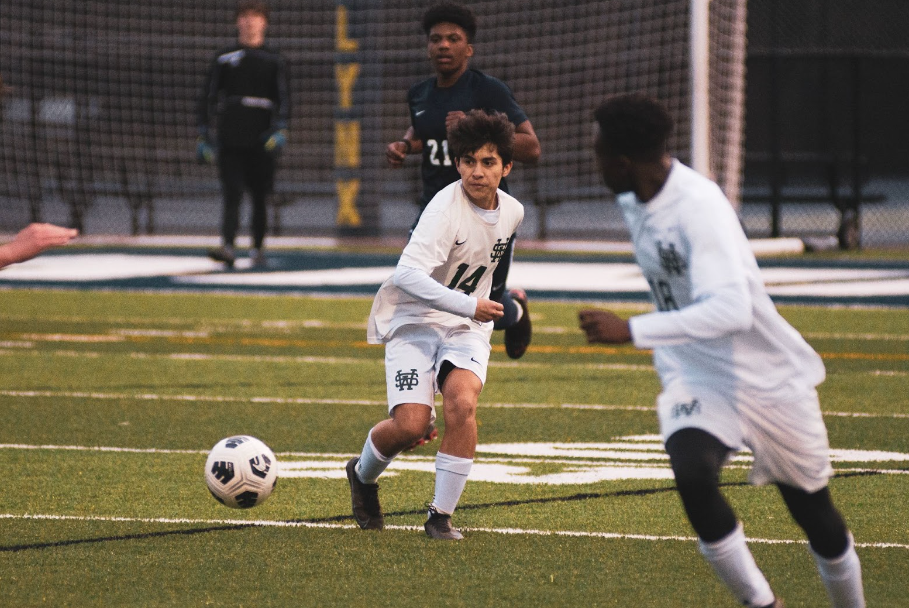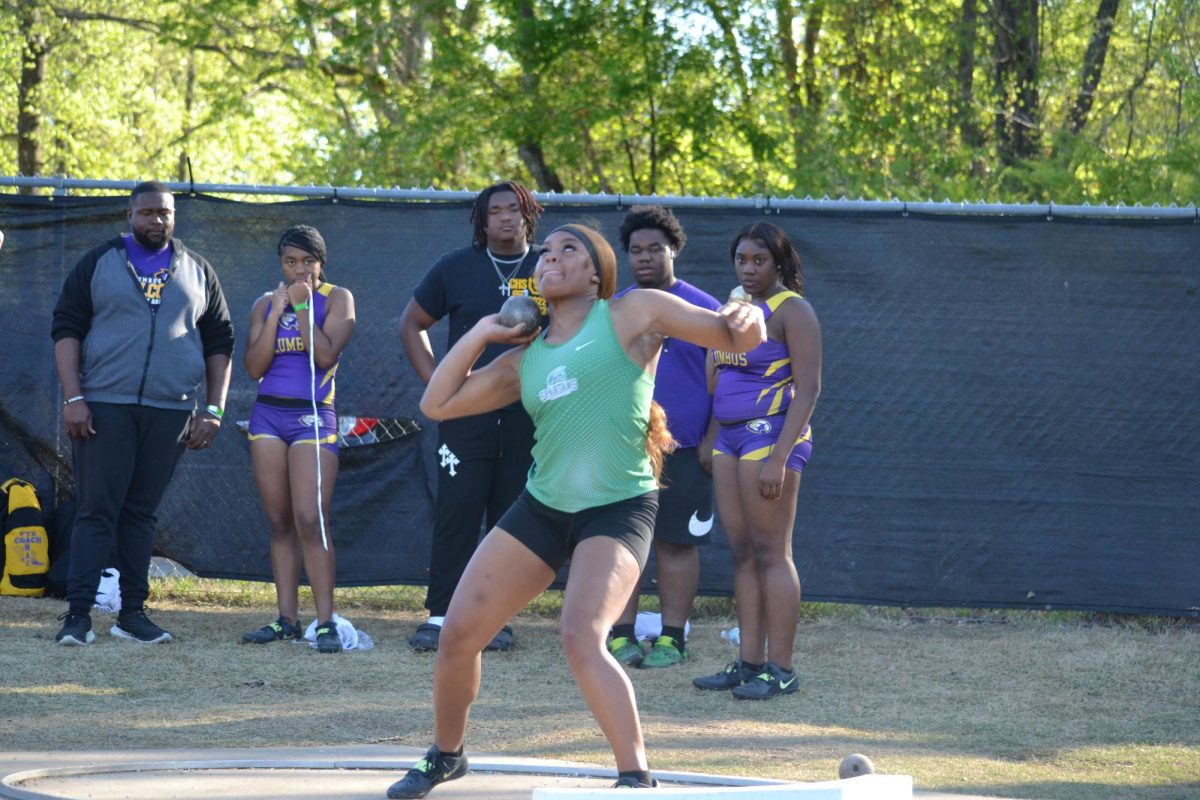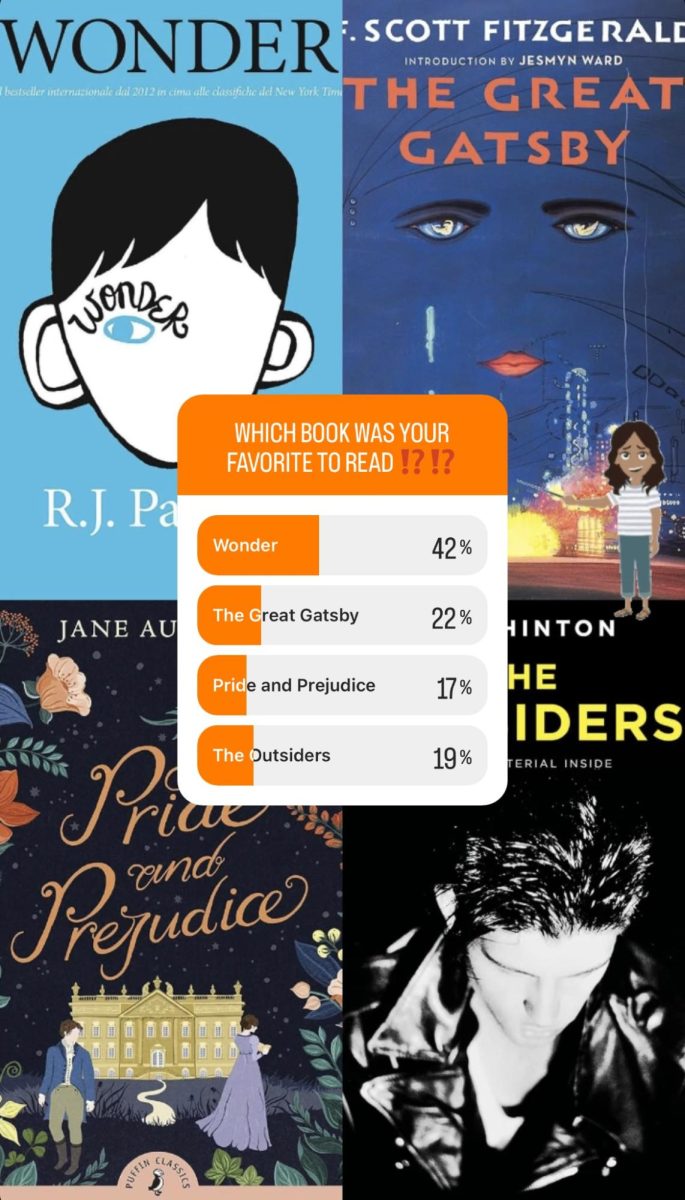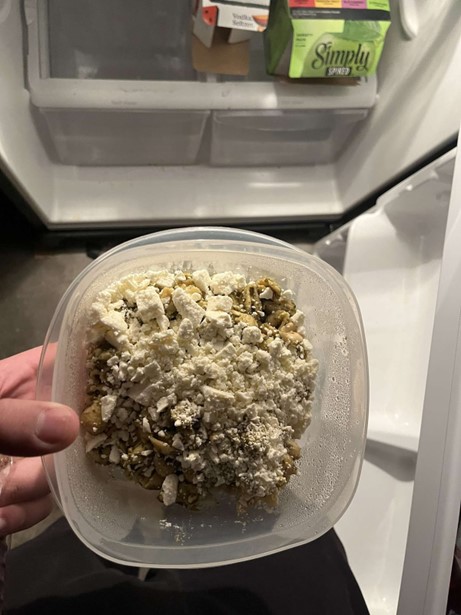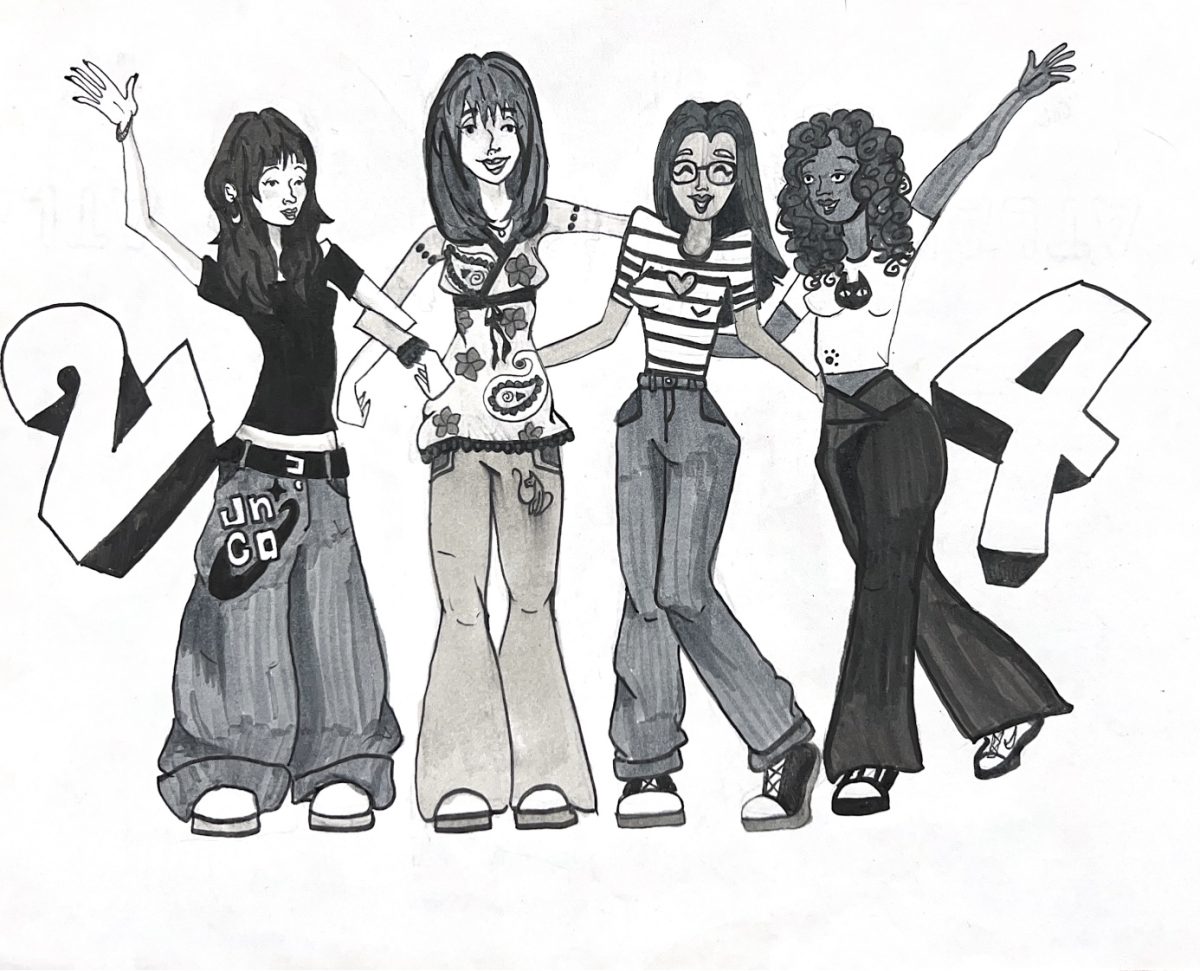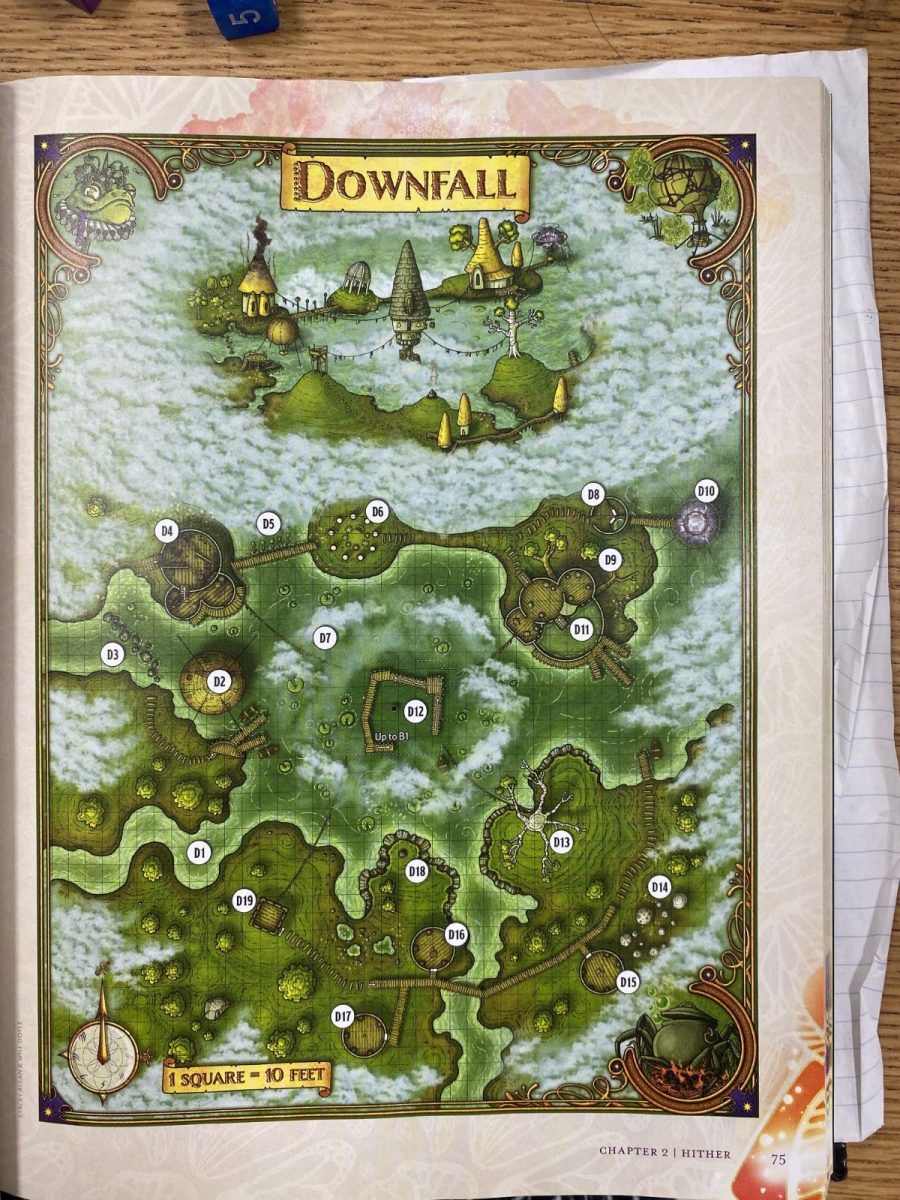The night is peaceful. Not a sound is heard save for the gentle and rhythmic buzz of cicadas and the crackling of a fire within the ancient forest. A group has stopped to rest for the night, sleeping soundly among the twisted trees. Suddenly, the ground shakes, branches snap and the peaceful night becomes an intense battle of the mind and body.
Dungeons and Dragons (D&D) is a fantasy tabletop role-playing game that was first created in 1974 and has expanded into the White Station High community. Games are usually played with four to seven members but only one person controls the game: the dungeon master.
“[When playing D&D] you get with a group of friends and you craft a story with your dungeon master who is sort of leading the story,” James Darling (12) said. “The dungeon master works personally with the players and by themselves to craft a world and sort of an overarching story that serves [as a basis for the game].”
Darling began his journey with D&D in sixth grade when a family friend, who had been playing since the 1980s, introduced him to the game which involved fantasy, science fiction and risk. Darling continued playing D&D at White Station Middle which was his first introduction to the technicalities of switching from a player to a dungeon master.
“You have to be knowledgeable about the comfortability levels of your players and the people around you,” Darling said. “You want to make sure that everyone is having fun.”
Dungeon masters create unique environments for players that allow students at White Station to form bonds with their peers over the months, or even years, that it can take to finish a campaign.
“I would like to make sure that D&D is a safe place for everyone and that everyone feels comfortable,”
Darling said. “[I want to make sure everyone can] have a ton of fun playing the game, because I know that everyone can.”
Similarly to Darling, friendship is what compelled Simon Schoenberger (12) to join Darling as a member of the White Station High D&D Club. After a year of campaigning, or strings of gaming sessions and adventures where players continue with the same party of characters, Schoenberger made the switch to dungeon master.
“I tried [being a dungeon master] for the Dungeons and Dragons club in the seventh grade and it was a great lesson in what not to do in the future,” Schoenberger said. “I didn’t prepare enough and didn’t have a solid outline, which obviously is just inexperience, but … even if you think you are good at coming up with stuff on the spot and improvising, you still need to have a basis, you still need to have a structure.”
D&D is played to test the imagination and adaptability of the mind through the chance of the dice and the encounters made by the dungeon master. The role of dungeon master allows Schoenberger to tap into the creative side of the game.
“Being a dungeon master as a whole [can be difficult] because there are so many moving parts you have to be aware of at all times and you have to be able to think on your feet and respond very quickly to any situations your players might come up with,” Shoenberger said. “I mean it’s like creating a whole world.”
There is no one guidebook with specific rules for the game, so Schoenberger adopts several elements of a story from the multitudes of official D&D books and content to implement within his own campaign.
“A lot of the time D&D is so freeform that you can kind of just be like alright here’s the structure, here’s kind of what I’d like to happen and then just start playing and see where it goes,” Schoenberger said. “You can never give too much structure … there needs to be a way that the characters can grow.”
Unlike Darling and Schoenberger who gradually adopted the role of a dungeon master, Madelyn Imlay (12) dove in head first. Although the role of a dungeon master may seem daunting to many beginning players, Imlay wanted to use her passion for creative writing to create stories and monsters within the D&D world as a dungeon master.
“I think you learn a lot by just throwing yourself [into the role of dungeon master] because a lot of people are like ‘it’s so daunting,’ … but that doesn’t matter, just throw yourself in,” Imlay said. “The reason people don’t want to try new things is because they think they’ll be bad at it but everybody has to start somewhere.”
The role of a dungeon master may seem restrictive to the players, but many dungeon masters find that adapting and reacting to the players can create their own impact within the story.
“The biggest problem I see with a lot of [dungeon masters] is that they don’t understand that this isn’t the book,” Imlay said. “You can’t dictate how your players are going to act and if you set one specific course of action for them that’s restricting and they’re going to feel like they’re just pawns … and not like actual players who have choices.”
For every dungeon master, D&D is a community-centered game revolving around the players. As the story develops, players are able to feel connected both in and out of the game, and their characters can grow in connection with the imagination of the surrounding story.
“When I can set up an environment and a story where … everybody is very into an argument or like a conversation and it changes the atmosphere, it’s very satisfying when you get that big climactic moment that you’ve been setting up for so long,” Imlay said.
